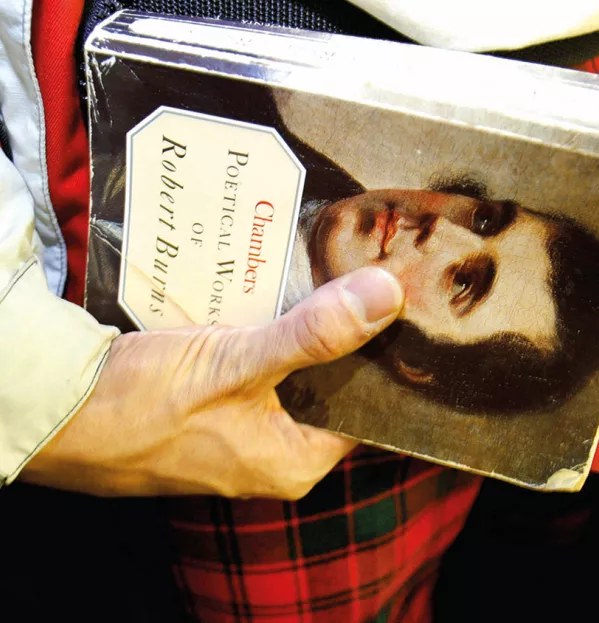In an unremarkable school building, on a winter’s Friday night when the Glasgow rain is pelting down remorselessly, hundreds of pupils are undergoing some remarkable transformations.
Sitting in one corridor of St Mungo’s Academy in the city’s East End, a P5 girl with dark plaited hair stares ahead, a nervous half-smile fixed on her face, her hands clasped. She’s called into a classroom where two women sit waiting. The girl composes herself and launches into a section of Tam o’ Shanter - it turns out to be tour de force of whirling hand movements and emphatic, sonorous delivery.
In another classroom, six senior primary pupils amble in, wearing various tartan accoutrements. They zip through Auld Lang Syne, and their version of Robert Burns’ most famous song is light years away from the awkward Hogmanay singalongs that reduce it to a meaningless dirge - the staccato sass of the pupils’ version feels more Brooklyn than Bridgeton.
Down the corridor, a P1 girl, all bouncy curls like Bonnie Langford in Bugsy Malone, does that five-year-old thing of wide-eyed gawping and head-rolling, as if taking in the Taj Mahal rather than a nondescript school corridor. But when she’s called into the classroom, she locks in: her performance of To a Mouse has the seasoned strut of a Broadway star.
The evening continues like this for several hours. Around 500 pupils of all ages from different schools, as individuals and in groups, quietly file through the corridors, into a classroom or gym. Here, in each of around a dozen performance spaces, an audience of one or two people - all volunteers from Bridgeton Burns Club - waits for them to launch into a recitation of poems or songs written more than 200 years ago.
Burns still inspires us today
Today, on the 260th anniversary of the birth of Robert Burns, it’s worth reflecting on the remarkable resonance of his work in Scottish education, all these years later. The contest I recently attended at St Mungo’s Academy is not unique in Scotland, although it is one of the biggest of its kind. In classrooms all over the country, children of all ages are this month learning and reciting Scots poems in honour of Burns.
It’s a continuing phenomenon that often goes unremarked upon, but one to be proud of. National days of celebration often fete imperial conquests or descend into festivals of boozy overindulgence, so it’s noteworthy that Scotland’s national day - for that’s what it is, more so than the muted commemoration of St Andrew in November - is a time to laud poetry, culture and humanity.
Like with many a national hero, of course, a cursory examination of Burns’ life makes it clear that we are lauding a flawed individual. His body of work continues to resonate, however, because of its repeated rallying call that we should look for what binds us all, not what divides us.
Take just one poem, A Man’s a Man for a’ That, with its seething disdain for any “lord, Wha struts an’ stares” and who expects everyone to be impressed by his “tinsel show”. Someone of “independent mind”, says Burns, “looks an’ laughs at a’ that”. The parting message is that the divisive power wielded by a cabal of arrogant leaders is transitory: Burns is optimistic that the goodness of humankind will endure, whatever the follies and outrages of those who sit astride artificial hierarchies.
There is a danger that we can become blasé about Burns, as we go through the motions of boiling up a supermarket haggis or patting our sons and daughters on the head for struggling through an 18th-century poem.
So let’s not forget this: in these times of bewildering upheaval, when world leaders want to build walls rather than extend the hand of friendship, there are few better starting points for education than the unstinting humanity of Robert Burns.
@Henry_Hepburn
* This article first appeared in the 25 January 2019 Tes magazine issue under the headline “Scotland’s auld acquaintance with Burns should never be forgot…”
